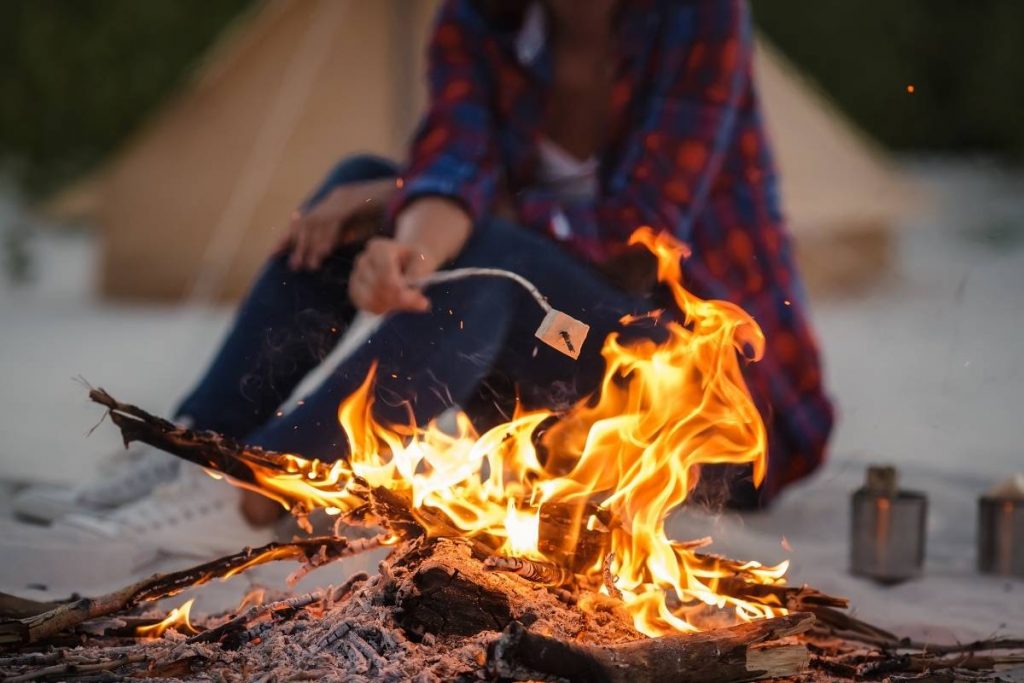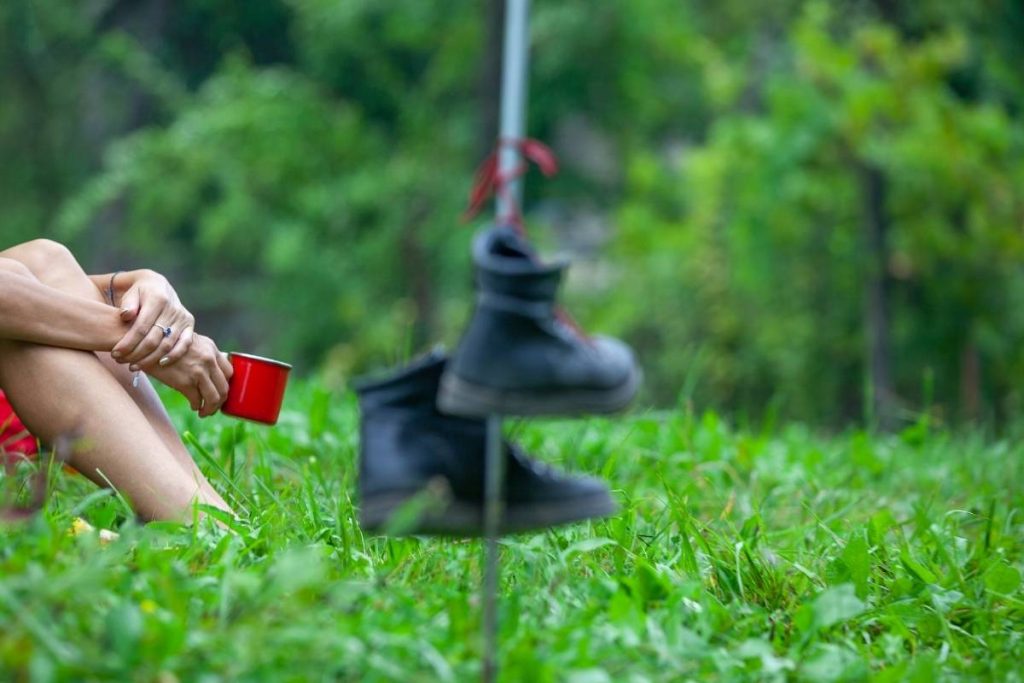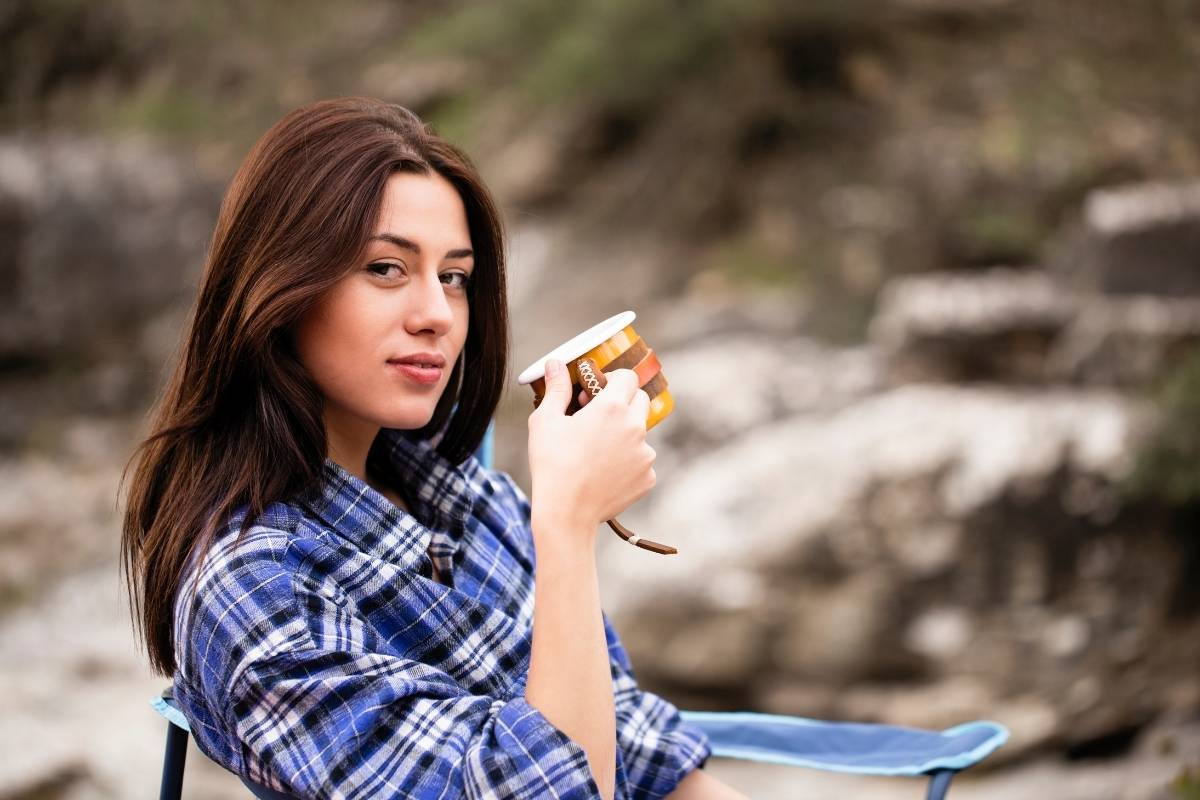Camping trips and outdoor activities are fun. Whether you are a beginner or a professional, you may want to try new thing and enhance your overall camping experience. The best way to do that is to spend few days outdoors without a tent.
With some basic planning it is perfectly safe to sleep outside without a tent. You will need to take some form of equipment with you if you do plan to camp this way and will need to consider what you are going to sleep on and how you will shelter from adverse weather conditions such as rain or high winds. Choosing a good mat or hammock will help to keep you off the ground and warm.
Table of Contents
Camping Under the Stars
If you plan to sleep under the stars without a tent, you have to be fully aware that the gear within your possession will be limited but crucial.
For this reason, you need to have only the most efficient and useful of items so you can travel as light as possible.
Learning to sleep under the stars is worth its weight in gold when you get used to it.
Whether exploring long climbing routes or hiking in unfamiliar terrain, you have to be prepared for such situations.
You will normally find out the beauty of sleeping without a tent if you find yourself one or two nights without equipment. In this particular moment, you will realize that, in fact, very little is needed when you are out camping in summer and when the weather is nice in general.
All you need to have is a bug or bear spray if these creatures are known to be around, a mosquito net, a sleeping bag and maybe even a hammock to get the most out of this experience.
Is It Safe To Sleep Without A Tent?
It must be said, a tent still creates a psychological barrier against outside dangers such as wild beasts, insects and humans.
You will be able to keep your mind at easy, but camping is about the excitement and trying new things, isn’t it?
However, before you go out camping, it is recommended to do a research about the area you are heading to.
Find out if there if are any animals that are known to live there?
What are the closest town and cities?
Are there any swamps or hideouts nearby?
How is the weather going to be throughout your camping period?
Make a list all the potential dangers and it will then be up to you to determine whether it is safe or not.
When it comes to sleeping without a tent, you need to focus on preventing smaller creatures from crawling to your sleeping bag, after all, if there is a bear around, a tent won’t provide much protection but a bear spray will.
In our opinion, camping outside without a tent is safe as long as all the precautions above are taken into account.
We make sure not to depart unless we have the necessary equipment to make our surroundings safe.

What Equipment do I Need?
You will love the freedom that the beautiful stars have to offer, all you have to do is find a suitable place and take with you the necessary equipment we will mention in this part of the article.
Camping is much less complicated than with a tent, especially in mountainous areas. It is also faster to decamp, a big plus when you will need an early start the next day.
Animal Spray
You should never forget to pack animal sprays with you. Bear sprays, insect spray and even ultrasonic rodent and pest repellers if you want to be extra safe. We recommend the following as we have found them to be most efficient:
REPEL Plant-Based Lemon Eucalyptus Insect Repellent
Ultrasonic Pest Repeller
Safety Kits.
You never know what may happen in your camping trip but it is better to prepare for all scenarios.
Injuries are frequent, that is why we recommend you have a first aid and safety kit:
No products found.
There is no possible way you can have an unlimited source of clean and drinkable water, therefore, you must be ready to drink from rivers and lakes.
In order to do that, you need to purify the water first to avoid being poisoned or have digestion issues. These purifiers offer an ideal solution
Tarps and Rainflies.
It does not matter if you are camping with or without a tent, tarps and rainflies are important.
A ground tarp will keep your clothes and gear clean. A rainfly will keep you dry in case it rains and will prevent that morning sun from waking you up. These two options are ideal:

Sleeping Bags and Pads
While we understand you want that primitive camping experience, you also want to be as comfortable as possible.
Here are our favorites:
Hyke & Byke Katahdin Sleeping Bag
WellAx Ultralight Sleeping Pad
Some Tips For Sleeping Outside Without A Tent.
So, to the question: “Is it safe to sleep outside without a tent?” the answer is yes.
If you take all the equipment listed above, you will be able to spend a quiet and safe night.
Here are some tips that can make your experience better:
Stay Away From Water Sources
Make sure to stay at least 250 away from any nearby water source.
Lakes and rivers are home to wild animals and insects.
Keep Away From The Road
Passing cars and trains will disrupt your sleep and you will find yourself without energy the next day.
Obey The Law.
There are some areas where you are not allowed to camp. Do your research and respect the regulations set by the authorities.
Never Sleep Where You Eat
The food leftovers and crumbs will attract insects and animals, so make sure not to eat where you sleep.
Final Words
For a great primitive camping experience, you should expect to feel the gusts of wind, hear the crackling of the branches, be sometimes kept awake by the natural light or the sound of distance birds.
This does not mean that you should not be properly prepared to keep yourself or your companions safe.
You can travel light if your choice of gear is correct. Take only the necessities but make sure the safety tools are packed first.





